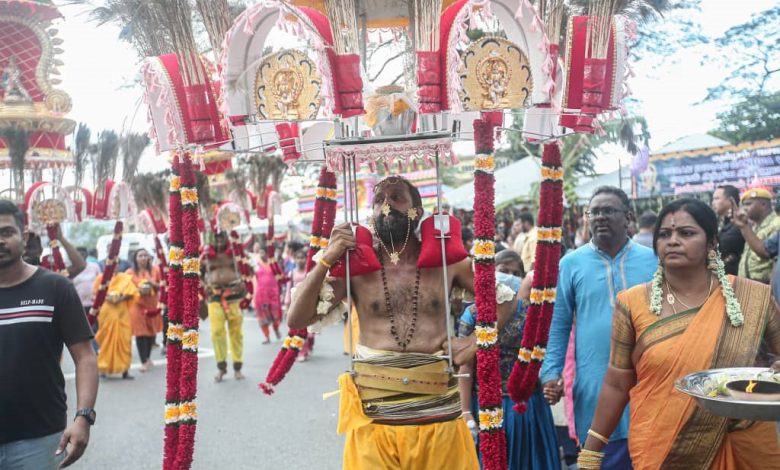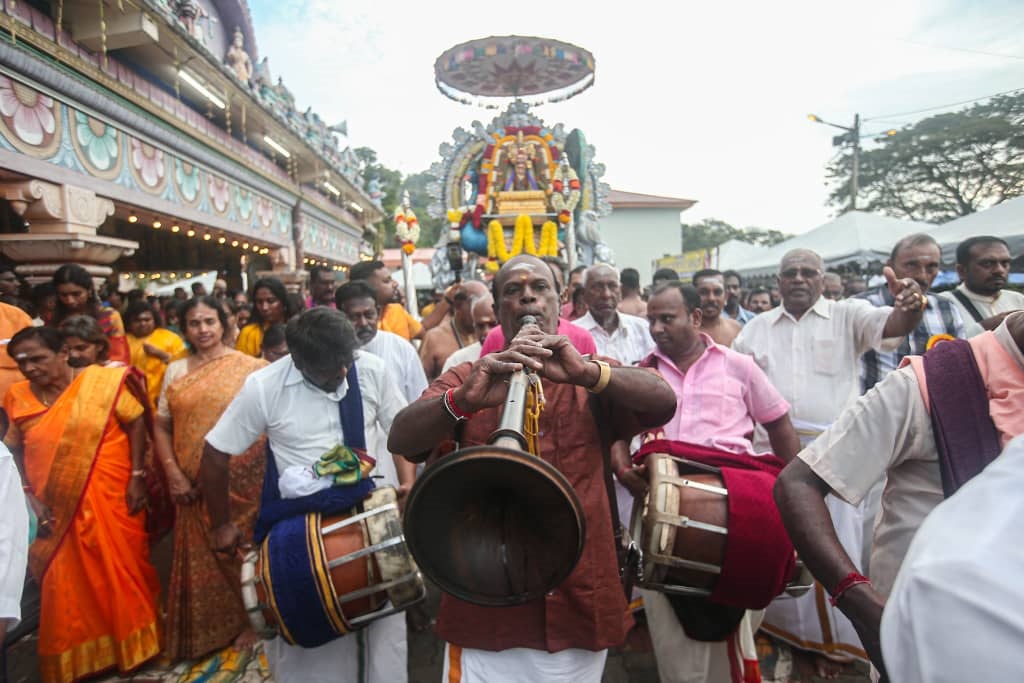

By: Rosli Mansor Ahmad Razali
Thaipusam marks a celebration embraced by Hindu adherents globally, dedicated to honouring the Hindu deity, Lord Murugan, also recognized as Lord Subramaniam, for triumphing over the malevolent figure Surapadman.
These include the Arulmigu Balathandayuthabani Temple in George Town, Penang, and the Sri Subramaniyar Swami Temple in Batu Caves, Selangor.
Hindu devotees also flock to other significant temples such as Sri Subramaniar in Gunung Cheroh, Ipoh, Sivasagar Temple in Kuching, and Sri Muniswarar Temple in Tampoi, Johor, during the Thaipusam festivities.
In Ipoh, as early as 6 AM, the Hindu community gathers at the over 100-year-old Sri Subramaniar Temple.
Beyond participating in the festive atmosphere, many Hindu devotees fulfil vows and seek redemption for their sins during Thaipusam.
The day is seen as an opportunity for redemption and seeking forgiveness for past transgressions.


Kavadi: A Sacred Offering
Kavadi is one of the offerings made to Lord Murugan, accompanied by the traditional music of ‘urumee melam.’ In Tamil, Kavadi means carrying a burden on the shoulders. It is an arched structure adorned with peacock feathers, glass artwork, and various decorations.
Some Kavadi can weigh up to 35 kilograms, with different types such as Pookavadi (flower-based), Vel Kavadi (based on the sacred spear associated with Lord Murugan as the Hindu war god), Mayil Kavadi (peacock feather-based), Pazha Kavadi (fruit-based), and more.
Only male Hindu devotees undertake the task of carrying Kavadi, as it requires significant physical strength.
Paal Kudam: Milk Offering
Paal Kudam is a popular milk offering during Thaipusam, serving as a way to fulfil vows. Devotees dressed in yellow carry pots containing ‘paal kudam’ (milk offering) on their heads.
The milk is later used in the Paal Abhishegam ceremony, where Hindu priests pour milk over the deity while reciting mantras. “Abhishegam” originates from Sanskrit, meaning to bathe or sanctify.
Alagu Kuthuthal: Piercing Ritual
Alagu Kuthuthal, also known as the piercing ritual, is a form of vow fulfilment during Thaipusam.
Devotees pierce their mouths, tongues, or the back of their bodies with sharp metal needles or hooks.
This ceremony takes place after Pooja (prayers) for Lord Murugan, aiming for the devotee’s vow to be blessed.
The size of the needles and the number of hooks used depend on the individual’s vow to the deity.
Thaipusam is not merely an annual traditional celebration; it emerges as a unique festival that adds vibrancy to the country’s tourism industry.




